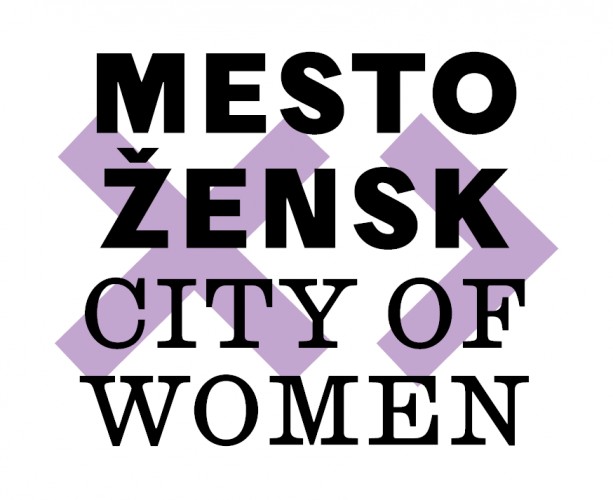The installation artist Milijana Babić has embarked on a search for a conceptual home, not a physical place, but an ideal one based on her utopian ideas. Her search was inspired by the imagination of children and the activity of play, both of which are able to dissolve limits and boundaries. A recurring motif in her installations, paintings and sculptures is that of the pig-tailed girl, Babić's alter ego, who searches for identity and "a home away from home". In Nonsense-one of the works featured at City of Women-this figure is represented by a large, white, blow-up Alice-in-Wonderland doll. Slumped and hunched over, it fills a tiny room, having taken a sip from the magic "Drink Me" bottle. Accompanied by the spiritual figure of the Rabbit and a wall drawing that includes the well-known song asking us to join the dance, the installation playfully references the fictions in our lives even as it requests our active engagement in the creation of our own identity in our dance with the world.
Babić emphasises that it is not her own childhood that particularly interests her. Her works are devoid of any personal detail; instead, she creates an imaginative space for engagement. Through a simplified aesthetic that rarely ventures beyond black, grey and white, the use of enlarged children's colouring book and puzzle games, as well as play with individual words and their associated meanings, her works invite the viewer to fill in the blanks and embark on her or his own imaginative journey.
In her Not for Sale exhibition for the Durban Designers Emporium show in 2002, Babić juxtaposed fashion symbols, such as the "one size fits all" sentence on a large mirror, with an aluminium cut-out "hang-girl" and the incomplete word "f_ee", implying liberty ("free") and entrapment ("flee"). In her Hopscotch installation in 2002, parts of which will be presented at the Alkatraz Gallery, Babić used shiny silver candies to write the word "feel" on a dark wall, and then built a metal cage around it. The viewer could only see the objects of desire behind bars. In Flame-one of her installations at the New Durban Gallery (2003) – visitors were invited to connect the dots in a wall drawing of a cosy living room scene, as well as to fill in the empty walls. The fireplace inside the gallery framed flames cut from mirrors, and so the fire, considered to be the heart and warmth of a home, actually reflected the viewer. Home, according to Babić, ultimately exists within oneself.
Bettina Knaup

